The Well-Tempered Ear
They decoded Beethoven’s DNA. Here’s what they found
Leave a Comment
PLEASE HELP THE EAR. IF YOU LIKE A CERTAIN BLOG POST, SPREAD THE WORD. FORWARD A LINK TO IT OR, SHARE IT or TAG IT (not just “Like” it) ON FACEBOOK. Performers can use the extra exposure to draw potential audience members to an event. And you might even attract new readers and subscribers to the blog.
By Jacob Stockinger
After 200 years, the DNA of Ludwig van Beethoven (below, 1770-1827) has been analyzed by a team of researchers.
The DNA was obtained from some of the famous composer’s hair.
The new study analyzed the German composer’s genes to get a better understanding of the health problems — deafness and liver failure among them — that plagued him.
Read about it — via Apple News, just click on continue — in a story from the Canadian-American VICE magazine: https://apple.news/AgGnJPZZcRyuC3nH2ycFL3A
Tags: #BlogPost, #BlogPosting, #FacebookPost, #FacebookPosting, #TheU.S., #ViennaAustria, alcoholism, America, American, analysis, analyze, Apple, Apple News, Arts, Austria, Beethoven, blog, Canada, Canadian, Chamber music, choral music, Classical music, code, composer, Concert, concerto, deaf, deafness, decode, disgestion, DNA, Facebook, failure, famous, gene, genetics, German, Germany, hair, Health, health problems, hearing, Jacob Stockinger, link, liver, Ludwig van Beethoven, magazine, Music, news, opera, Orchestra, Piano, problems, research, researcher, science, scientist, share, Sonata, stomach, symphony, tag, team, The Ear, U.S., understanding, United States, vice, Vienna, Viola, Violin, vocal music
The Wisconsin Chamber Orchestra starts its four-concert Winter Chamber Series TONIGHT at 7:30. Tickets are $30 for one-time access from Friday night to Monday night
Leave a Comment
PLEASE HELP THE EAR. IF YOU LIKE A CERTAIN BLOG POST, SPREAD THE WORD. FORWARD A LINK TO IT OR, SHARE IT or TAG IT (not just “Like” it) ON FACEBOOK. Performers can use the extra exposure to draw potential audience members to an event. And you might even attract new readers and subscribers to the blog.
By Jacob Stockinger
The new semester of virtual online concerts begins tonight with the inauguration of the Winter Chamber Series by the Wisconsin Chamber Orchestra (WCO, below in a photo by Mike Gorski).
Tonight’s program features music by Giovanni Gabrieli, Valerie Coleman, Alec Wilder, Craig Russell and Franz Schubert. (In the YouTube video at the bottom, you can hear the first movement of the Schubert Cello Quintet, played by the Chamber Music Society of Lincoln Center.)
The programs are short and feature classic works as well as new music and neglected composers. Often single movements or excerpts rather than complete works are performed.
Concerts all debut on Fridays and remain available through Monday night. Debut dates are TONIGHT, Jan. 22; Feb. 26; March 26; and April 16. A ticket entitles the purchaser to one viewing.
Here is a description of the chamber music series from the WCO:
“While full orchestras remain sidelined, the WCO is excited to present the Winter Chamber Series. This new series will feature chamber works for multiple ensembles ranging from trios to octets, showcasing the versatility and caliber of the WCO’s 34 world-class musicians.
“Patrons will enjoy the four-concert series in the comfort of their own home, streaming each concert on WCO Live on-demand starting at 7:30 p.m. on the evening of the concert launch.
“All programs will be 60–75 minutes in length, with not only music but also stories from the WCO’s own musicians on their journey to becoming professional musicians.
“Also included is a pre-concert talk with maestro Andrew Sewell and Norman Gilliland, as well as a post-concert reflection with musicians of the WCO.”
Here is a link to the concerts, with programs plus notes by music director and conductor Sewell (below in a photo by Alex Cruz) as well as a link to purchase tickets from the Overture Center box office: https://wcoconcerts.org/concerts-tickets/winter-chamber-series
In addition, the WCO has started a musician’s relief fund. It seeks donations to pay musicians for the wages they have lost due to postponed or canceled concerts.
Here is a link: https://wcoconcerts.org/support/donate
Tags: #AlecWilder, #AndrewSewell, #ArtsPatron, #BlogPost, #BlogPosting, #BoxOffice, #BrassMusic, #CelloMusic, #ChamberMusic, #ChamberMusicSocietyofLIncolnCenter, #ConcertSeries, #CoronavirusPandemic, #COVID-19, #CraigRussell, #FacebookPost, #FacebookPosting, #FranzSchubert, #Fridaynight, #GiovanniGabrieli, #JacobStockinger, #LincolnCenter, #MeadWitterSchoolofMusic, #Mondaynight, #MusicalExcerpt, #MusicDirector, #NeglectedComposers, #NewMusic, #NormanGilliland, #OnlineConcert, #OvertureCenter, #Pre-concertTalk, #ProfessionalMusician, #ProgramNotes, #StringMusic, #StringQuartet, #TheEar, #TheInauguration, #TheUW, #UniversityofWisconsin-Madison, #ValerieColeman, #ViolinMusic, #VirtualConcert, #WindMusic, #WinterChamberSeries, #WisconsinChamberOrchestra, #WisconsinPublicRadio, #YouTubevideo, Alec Wilder, Andrew Sewell, Arts, audience, available, become, biography, blog, box office, brass music, calibre, canceled, cellist, Cello, cello music, Chamber music, Chamber Music Society of Lincoln Center, classic, Classical music, Coleman, comfort, complete, composer, Concert, concert series, conductor, coronavirus, Craig Russell, debut, donation, donor, Early music, ensemble, excerpt, excite, Facebook, Facebook post, Facebook posting, flute, forward, Franz Schubert, Friday, full, fund, Gabrieli, Giovanni Gabrieli, hearing, Home, Horn, host, inauguration, Jacob Stockinger, journey, length, like, Lincoln, LIncoln Center, link, listener, lost, Madison, Mead Witter School of Music, minute, minutes, Monday, movement, multiple, Music, Music director, musicians, neglected composers, new, New Music, night, Norman Gilliland, notes, Octet, one, online, Orchestra, Overture Center, pandemic, patron, post, post-concert, posting, postponed, pre-cocert, pre-concert, professional, program, program notes, purchase, purchaser, reflection, relief, remain, Russell, Schubert, semester, share, short, sidelined, single, stories, story, stream, string music, String quartet, symphony, tag, talk, The Ear, ticket, tickets, time, tonight, trio, United States, University of Wisconsin-Madison School of Music, University of Wisconsin–Madison, UW, UW-Madison, UW-Madsion, VALERIE COLEMAN, versatility, Viola, viola music, Violin, violinist, violist, virtual, WCO, Wilder, wind music, winter chamber music, Winter Chamber Series, Wisconsin, Wisconsin Chamber Orchestra, wisconsin public radio, YouTube
Classical music: Trevor Stephenson announces the new season of the Madison Bach Musicians on YouTube. It features smaller concerts and familiar comfort music
Leave a Comment
PLEASE HELP THE EAR. IF YOU LIKE A CERTAIN BLOG POST, SPREAD THE WORD. FORWARD A LINK TO IT OR, SHARE IT or TAG IT (not just “Like” it) ON FACEBOOK. Performers can use the extra exposure to draw potential audience members to an event. And you might even attract new readers and subscribers to the blog.
By Jacob Stockinger
At a time when so many concerts are being canceled, it is especially welcome when a local ensemble announces plans for the 2020-21 season.
To announce the 17th season of the Madison Bach Musicians — a period-instrument group that uses historically informed performance practices — the founder and artistic director Trevor Stephenson (below), who also plays the harpsichord, fortepiano and piano, has made and posted a 13-1/2 minute YouTube video.
The season will also be posted on the MBM website in early June, and will also be announced with more details about times and ticket prices via email and postal mailings.
In the video, Stephenson plays the harpsichord. He opens the video with the familiar Aria from the “Goldberg” Variations and closes with two contrasting Gavottes from the English Suite in G minor.
As usual, Stephenson offers insights in the programs that feature some very well-known and appealing works that are sure to attract audiences anxious to once again experience the comfort of hearing familiar music performed live.
One thing Stephenson does not say is that there seems to be fewer ambitious programs and fewer imported guest artists. It’s only a guess, but The Ear suspects that that is because it is less expensive to stage smaller concerts and it also allows for easier cancellation, should that be required by a continuing COVID-19 pandemic.
If the speculation proves true, such an adaptive move is smart and makes great sense artistically, financially and socially given the coronavirus public health crisis.
After all, this past spring the MBM had to cancel a much anticipated, expensive and very ambitious production, with many out-of-town guests artists, of the “Vespers of 1610” by Claudio Monteverdi. Nonetheless, MBM tried to pay as much as it could afford to the musicians, who are unsalaried “gig” workers who usually don’t qualify for unemployment payments.
“Hope and Joy” is a timely, welcome and much-needed theme of the new season.
The new season starts on Saturday night, Oct. 3, at Grace Episcopal Church downtown on the Capitol Square, and then Sunday afternoon, Oct. 4, at Holy Wisdom Monastery in Middleton.
The program is Haydn and Mozart: songs composed in English and German by Haydn plus songs by Mozart; the great violin sonata in E minor by Mozart; and two keyboard trios, one in C major by Haydn and one in G major by Mozart.
Only four players will be required. They include: Stephenson on the fortepiano; concertmaster Kangwon Kim on baroque violin; James Waldo on a Classical-era cello; and soprano Morgan Balfour (below), who won the 2019 Handel Aria Competition in Madison.
On Saturday night, Dec. 12, in the First Congregational United Church of Christ, near Camp Randall Stadium, MBM will perform its 10th annual holiday concert of seasonal music.
The program includes several selections from the “Christmas Oratorio” by Johann Sebastian Bach; a Vivaldi concerto for bassoon with UW-Madison professor Marc Vallon (below, in a photo by James Gill) as soloist; and the popular “Christmas Concerto” by Arcangelo Corelli.
On Saturday night, April 24, at Grace Episcopal Church and Sunday afternoon, April 25, at Holy Wisdom Monastery, the MBM will perform a concert of German Baroque masterworks with the internationally renowned baroque violinist Marc Destrubé (below).
The program features Handel and Bach but also composers who are not often played today but who were well known to and respected by Bach and his contemporaries.
Specifically, there will be a suite by Christoph Graupner (below top) and a work by Carl Heinrich Graun (below bottom).
There will also be a concerto grosso by George Frideric Handel and two very well-known concertos by Bach – the Brandenburg Concerto No. 3 and the Concerto for Two Violins.
Here is the complete video:
What do you think of the Madison Bach Musicians’ new season?
The Ear wants to hear.
Tags: "Goldberg" Variations, #AntonioVivaldi, #ArcangeloCorelli, #ArtisticDirector, #BaroqueMusic, #BaroqueViolin, #BassoonConcerto, #BlogPost, #BlogPosting, #BrandenburgConcerto, #CampRandall, #CampRandallStadium, #CapitolSquare, #CarlHeinrichGraun, #ChamberMusic, #ChristianChurch, #ChristmasConcerto, #ChristmasOratorio, #ChristophGraupner, #CityofMadison, #Classicalera, #ClaudioMonteverdi, #ConcertoGrosso, #COVID-19, #EnglishLanguage, #EnglishSuite, #FacebookPost, #FacebookPosting, #FacultyMember, #FirstCongregationalUnitedChurchofChrist, #FranzJosephHaydn, #GeorgeFridericHandel, #GermanLanguage, #Goldberg"Variations, #GraceEpiscopalChurch, #GuestArtist, #HandelAriaCompetition, #HealthCrisis, #HistoricallyInformedPerformancePractices, #HolyWisdomMonastery, #HomeWebsite, #JacobStockinger, #James Waldo, #JamesWaldo, #JohannSebastianBach, #KangwonKim, #KeyboardMusic, #LiveMusic, #MadisonBachMusicians, #MarcDestrubé, #MeadWitterSchoolofMusic, #MiddletonWisconsin, #Musicfaculty, #MusicProfessors, #OrchestralMusic, #PandemicPlaylist, #PeriodInstrument, #PeriodInstruments, #PianoTrio, #PublicHealth, #SaturdayNight, #SeasonalMusic, #SopranoSinger, #Sundayafternoon, #TheEar, #TheFortepiano, #TicketPrice, #TrevorStephenson, #UniversityofWisconsin-Madison, #Vespersof1610, #ViolinConcerto, #ViolinMusic, #ViolinSonata, #VocalMusic, #WolfgangAmadeusMozart, #World-Renowned, #YouTubevideo, 2019, 2020, 2021, 21, adaptive, afford, afternoon, ambition, ambitious, announcement, annual, Antonio Vivaldi, anxious, appealing, Arcangelo Corelli, aria, artist, artistic, Artistic director, Arts, attract \anxious, audience, Bach, Baroque, blog, Brandenburg Concerto, Camp Randall, Camp Randall Stadium, cancel, cancellation, Capitol Square, Carl Heinrich Graun, cellist, Cello, Chamber music, Christmas, Christmas Concerto, Christmas Oratorio, Christoph Graupner, church, Classical era, Classical music, Claudio Monteverdi, close, comfort, composer, Concert, concertmaster, concerto, Concerto Grosso, contemporaries, contrast, Corelli, coronavirus, crisis, dance, December, detail, downtown, draw, Early music, easier, email, English, English language, English Suite, ensemble, expensive, Facebook, faculty, familiar, fewer, financial, First Congregational United Church of Christ, fortepiano, forward, founder, Franz Joseph Haydn, Gavotte, George Frideric Handel, German, Germany, gig, Grace Episcopal Church, great, guest, Handel, Handel Aria Competition, harpsichord, Haydn, hear, hearing, historically informed performance practices, Holiday, Holy Wisdom Monastery, home website, hope, import, inisght, international, Jacob Stockinger, Johann Sebastian Bach, Joy, June, Kangwoo Kim, Keyboard, like, link, live music, local, long-distance, Madison, Madison Bach Musicians, mail, mailing, Marc Destrubé, masterpiece, masterwork, MBM, Mead Witter School of Music, Middleton, Monteverdi, Morgan Balfour, MorganBalfour, move, Mozart, Music, Musician, new, night, offer, open, orchestral music, out-of-town, pandemic, pay, payment, performer, period instruments, period-instrument, Piano, Piano Trio, plans, play, popular, post, postal, posting, price, professor, program, public, Public health, renown, respect, salary, Saturday night, Season, seasonal, seasonal music, sense, share, singer, Singing, smart, social, Sonata, song, soprano, specific, speculation, Spring, stadium, start, Suite, Sunday afternoon, suspect, tag, The Ear, theme, ticket, time, timely, today, Trevor Stephenson, trio, unemployment, United States, University of Wisconsin-Madison School of Music, University of Wisconsin–Madison, unsalaried, usual, UW, UW-Madison, vesper, video, Violin, Violin Sonata, violinist, Vivaldi, vocal music, Website, welcome, well-known, winner, Wisconsin, Wolfgang Amadeus Mozart, worker, YouTube
Classical music: Home or concert hall? Will older listeners follow new CDC guidelines about the coronavirus to stay home and avoid attending concerts? What will performers and presenters do in response?
17 Comments
PLEASE HELP THE EAR. IF YOU LIKE A CERTAIN BLOG POST, SPREAD THE WORD. FORWARD A LINK TO IT OR, SHARE IT or TAG IT (not just “Like” it) ON FACEBOOK. Performers can use the extra exposure to draw potential audience members to an event. And you might even attract new readers and subscribers to the blog.
By Jacob Stockinger
Late yesterday the U.S. Centers for Disease Control (CDC) issued new guidelines for behavior during the outbreak of the coronavirus and COVID-19.
The CDC is asking all adults over 60, especially those with compromised immune systems and serious underlying illnesses and conditions, to “stay home as much as possible” and avoid attending events with big crowds. (Below is a sample of a full house at the Madison Symphony Orchestra in Overture Hall.)
Here is the full story — which also mentions other kinds of mass events such as movie theaters, mall shopping, sports events and religious services — from CNN: https://www.cnn.com/2020/03/06/health/coronavirus-older-people-social-distancing/index.html
Moreover, the new guidelines apply nationwide — including here in Wisconsin where only one case has been confirmed and is now healthy– during the increasingly widespread, worldwide outbreak of confirmed cases and deaths.
The Ear wonders if the new advice will hit classical music especially hard because so much of the audience for it is made up of older people who are more vulnerable.
Will the guidelines affect your own attendance at concerts, even tonight and this weekend at the Madison Symphony Orchestra, the University of Wisconsin-Madison and the Wisconsin Union Theater?
Will a lack of attendance and a more severe outbreak lead to empty concert halls and the cancellation of concerts? Refunds for seniors?
Will the guidelines lead to alternative ways of “attending” and hearing, such as live-streaming and other virtual attendance?
Pretty soon we should start hearing from music presenters and performers about their reactions, solutions and advice.
Meanwhile, here is a news story from The New York Times about what one string quartet did in Venice, Italy: https://www.nytimes.com/2020/03/04/arts/music/arts-coronavirus.html
Are you an older or vulnerable person?
Will you go to concerts or stay home?
What do you think presenters and performers should do to deal with the situation?
Please leave word about your plans and your thoughts.
The Ear wants to hear.
Tags: #BigCrowd, #BlogPost, #BlogPosting, #CentersforDiseaseControl, #ChamberMusic, #CNNNews, #ConcertHall, #COVID-19, #FacebookPost, #FacebookPosting, #FullHouse, #HomeWebsite, #ImmuneSystem, #JacobStockinger, #MadisonSymphonyOrchestra, #MallShopping, #MovieTheaters, #NewsUpdate, #ReligiousServices, #SeniorCitizen, #SocialDistance, #SportsEvents, #StringQuartet, #TheEar, #TheNewYorkTImes, #TheU.S., #UnitedStates, #UniversityofWisconsin-Madison, #VeniceItaly, #WisconsinUnionTheater, 60, adult, advice, advisory, alert, alternative, America, American, Arts, ask, audience, Beethoven, behavior, blog, cancel, cancellation, case, cases, CDC, Centers for Disease Control, Chamber music, church, Classical music, classicalmusic, CNN, compromised, Concert, concert hall, condition, confirm, confirmed, coronavirus, crowd, death, distance, empty, Facebook, forward, full house, games, guidelines, hearing, hit, Home, home website, idea, ill, illness, immune, immune system, isolate, isolation, Italy, Jacob Stockinger, Johannes Brahms, know, large, like, live-stream, Ludwig van Beethoven, Madison, Madison Symphony Orchestra, mall, mall shopping, mass, movie theaters, Music, nationwide, new, New York City, news, online, opera, Orchestra, outbreak, Overture Center, performer, performers, plans, post, posting, presenter, prevention, quarantine, reaction, refund, Religion, religious services, senior, senior citizen, share, Shopping, sick, social, social distance, solution, Sports, spread, stay, story, String quartet, symphony, tag, The Ear, The New York Times, The U.S., theater, theatre, think, tonight, underlying, United States, University of Wisconsin–Madison, UW-Madison, Venice, virtual, virus, vulnerable, way, Website, weekend, widespread, Wisconsin, Wisconsin Union Theater, word, worldwide, yesterday
Classical music: Happy New Year! The annual New Year’s Day concert in Vienna, popular around the world, airs on Wisconsin public radio and TV this morning and tonight
3 Comments
PLEASE HELP THE EAR. IF YOU LIKE A CERTAIN BLOG POST, SPREAD THE WORD. FORWARD A LINK TO IT OR, SHARE IT or TAG IT (not just “Like” it) ON FACEBOOK. Performers can use the extra exposure to draw potential audience members to an event. And you might even attract new readers and subscribers to the blog.
ALERT 1: What piece of music do you like most to celebrate the New Year? Leave the name and a YouTube link, if possible, in the Comment section.
By Jacob Stockinger
For many music fans, today just wouldn’t be New Year’s Day without the annual concert (below) by the Vienna Philharmonic with a famous guest conductor in Vienna, Austria, that is broadcast nationwide both on radio and television by PBS and NPR. (The concert also goes out to more than 90 countries around the world.)
In Wisconsin, the first hearing comes this morning from 10 a.m. to noon CST on Wisconsin Public Radio.
Then tonight from 8 to 9:30 CST, Wisconsin Public Television – recently rebranded as PBS Wisconsin – will feature a longer version with host Hugh Bonneville (below) of “Downton Abbey” and with choreographed dance interpretations by the Vienna State Ballet that take place in various historical sites in Vienna.
The broadcast will be available to stream tomorrow, Thursday, Jan. 2, on pbs.org/gperf and the PBS Video app.
Here is an overview with a biography of the critically acclaimed, Grammy-winning conductor Andris Nelsons (below), along with some background about the various orchestras he directs – including the Boston Symphony — and the spectacular floral arrangements in the Golden Hall:
https://www.wienerphilharmoniker.at/new-years-concert/new-years-concert-main
And here is a playlist of the waltzes, polkas and marches by the Strauss family and many other composers, including Beethoven since 2020 is the Beethoven Year and will celebrate the 250th anniversary of Beethoven’s birth:
https://www.wienerphilharmoniker.at/concerts/concert-detail/event-id/10034
As always, the performance will conclude with the Radetzky March (heard in the YouTube video at the bottom) with the audience clapping along.
If you are a fan of the event, you might also be pleased to learn the Sony Classical will again be releasing the live recording (below) and DVD very shortly. Every year Sony rushes to get it out and on the market – something made easier, one suspects, by streaming.

Tags: #AndrisNelsons, #BalletMusic, #BeethovenYear, #BlogPost, #BlogPosting, #BostonSymphony, #CompactDisc, #CriticallyAcclaimed, #DowntonAbbey, #FacebookPost, #GoldenHall, #GrammyAward, #GreatPerformances, #HappyNewYear, #HomeWebsite, #HughBonnevillle, #LiveattheChazen, #LiveRecording, #LiveStreaming, #LudwigVanBeethoven, #NationalPublicRadio, #NewYear, #NewYear'sDay, #NewYear'sDayFromVienna, #PBSWisconsin, #PublicBroadcastingSystem, #RadetzkyMarch, #SonyClassical, #TheEar, #ViennaAustria, #ViennaMusikverein, #ViennaPhilharmonic, #ViennaStateBallet, #WisconsinPublicRadio, #YouTubevideo, a.m., air, Andris Nelsons, annual, app, arrangement, Arts, audience, Austria, background, ballet, Beethoven, Beethoven Year, biography, birth, blog, Boston Symphony, Broadcast, CD, choreography, Classical music, classicalmusic, Compact Disc, Concert, conductor, countries, country, critically acclaimed, dance, direct, Downton Abbey, DVD, evening, Facebook, famous, fan, floral, flowers, forward, Golden Hall, Grammy, Grammy Award, Great Performances, Happy New Year, hearing, historical, History, home website, Hugh Bonneville, interpretation, like, link, live, Live Recording, live streaming, Ludwig van Beethoven, march, market, morning, Music, musical, National Public Radio, nationwide, New Year, New Year's Day From Vienna, night, noon, NPR, online, Orchestra, overview, p.m., PBS, PBS Wisconsin, performer, playlist, polka, post, posting, Public Broadcasting System, Radetzky March, Radio, recording, share, site, SONY, Sony Classical, spectacular, Strauss, streaming, tag, Television, today, TV, version, video, Vienna, Vienna Musikverein, Vienna Philharmonic, Vienna State Ballet, Waltz, Website, win, Wisconsin, wisconsin public radio, works, world, YouTube
Classical music: Excellent singing, acting, orchestral playing, sets and costumes combined to make Verdi’s “La Traviata” one of Madison Opera’s best ever productions
7 Comments
PLEASE HELP THE EAR. IF YOU LIKE A CERTAIN BLOG POST, PLEASE SPREAD THE WORD. FORWARD A LINK TO IT OR, SHARE IT or TAG IT (not just “Like” it) ON FACEBOOK. Performers can use the extra exposure to draw potential audience members to an event. And you might even attract new readers and subscribers to the blog.
By Jacob Stockinger
The experienced Opera Guy for this blog – Larry Wells – took in last weekend’s production by the Madison Opera of Verdi’s “La Traviata” and filed the following review. Performance photos are by James Gill.
By Larry Wells
During the first few moments of the Overture to Giuseppe Verdi’s “La Traviata” — on Sunday afternoon in Overture Hall — I had a feeling that this would be a special performance. Members of the Madison Symphony Orchestra sounded full and alive and attentive to artistic director and conductor John DeMain.
(You can hear the haunting overture or prelude, performed at the BBC Proms by the Milan Symphony Orchestra under Chinese conductor Xian Zhang, in the YouTube video at the bottom,)
Presented by Madison Opera, this performance will remain in my memory as one of the best I have attended here.
The traditional production was well staged by director Fenlon Lamb with beautiful sets (below) designed for Hawaii Opera Theater and provided by Utah Opera. The sets provided a sense of spaciousness and perspective as befits grand houses in 19th-century Paris.
Likewise, the costumes were spectacular, particularly in the masquerade scene (below) in the second act where almost everyone was in opulent black.
The three principal characters were all well portrayed, although tenor Mackenzie Whitney’s Alfredo (below left) seemed rather youthful to be proclaiming he was being reborn by his love for Violetta (below right).
Both Whitney and baritone Weston Hurt (below right), who portrayed Alfredo’s father Germont, sang perfectly well.
But all of my notes seem to have focused on soprano Cecilia Violetta Lopez’s portrayal of Violetta (below left, with Mackenzie Whitney as Alfredo). One aria, duet and ensemble after another was remarkably sung with her pure and crystalline voice.
Lopez is also a talented actress who convincingly conveyed the emotions of the heroine in their wide gamut from care-free courtesan to love-struck woman to abandoned consumptive.
I was close enough to the stage to see the changing emotions flicker across Lopez’s face, and I was very impressed, and ultimately moved, by her performance.
All three of the main characters could sing, but Lopez could really sing and act as well. It was an outstanding performance that left me quite affected.
The chorus sounded wonderful, and the choristers did not overact, for which I was grateful. Their contribution to the finale of the second act made that ensemble heartbreaking. Likewise, the final ensemble at the end of the opera left me bereft.
Altogether conductor, orchestra, singers, chorus, set, costumes and lighting combined to create an unforgettable afternoon. I pay tribute to Verdi for creating an enduring work of art and to John DeMain (below, in a photo by Greg Anderson) for an amazing performance.
For more background about the real-life story and inspiration of the opera and more details about the production and the cast, go to: https://welltempered.wordpress.com/2019/10/28/classical-music-the-madison-opera-performs-verdis-la-traviata-this-friday-night-and-sunday-afternoon-in-overture-hall/
Unfortunately, I was seated behind an older couple. The woman was obviously very ill and apparently was unable to lift her head high enough to see the stage, let alone read the supertitles. Her partner — I assume it was her husband — patiently whispered a summary of the supertitles throughout the performance.
I believe that people feel that they are inaudible to others when they whisper to their neighbor, but we all know that this is not the case.
I mentioned this to friends during the intermission, and they said that I should say something. However, my Midwestern niceness kicked in and I just endured it. I thought that perhaps this would be the last opera she would ever attend.
Yet I could not help feeling that I would not have enjoyed someone whispering in my ear while music was being performed; and I would have perhaps prepared in advance so that I knew what I would be hearing.
Additionally, I darkly mused that perhaps “La Traviata” is not an appropriate opera to bring someone who is critically ill to.
Readers’ thoughts on this matter would be appreciated.
Tags: #19thCentury, #ArtisticDirector, #AsianMusicians, #BaritoneSinger, #BBCProms, #BlogPost, #BlogPosting, #CeciliaViolettaLopez, #ChineseConductor, #ChoralMusic, #ClassicalMusician, #ConcertEtiquette, #CriticallyIll, #FacebookPost, #FacebookPosting, #FenlonLamb, #GiuseppeVerdi, #HawaiiOperaTheater, #husband-and-wife, #JacobStockinger, #JamesGill, #JohnDeMain, #LarryWells, #LaTraviata, #MackenzieWhitney, #MadisonOpera, #MadisonOperaChorus, #MadisonSymphonyOrchestra, #MasqueradeBall, #MilanItaly, #MilanSymphonyOrchestra, #MusicCritic, #MusicReview, #OperaGuy, #ParisFrance, #SopranoSinger, #StageDirector, #Sundayafternoon, #TenorSinger, #TheEar, #UtahOpera, #VocalMusic, #WestonHurt, #WorkofArt, #XianZhang, #YouTubevideo, 19th century, abandoned, act, acting, actress, advance, Alfredo, alive, amazing, another, appreciated, appropriate, aria, Art, Artistic director, Arts, Asia, asian, attend, attentive, audience, background, baritone, BBC Proms, beautiful, bereft, best, blog, care-free, cast, Cecilia Violetta Lopez, Central Midwest Ballet Academy, characters, China, Chinese, choral music, choristers, chorus, Classical music, classicalmusic, close, combine, composer, Concert, concert etiquette, conductor, consumptive, contribution, convey, costumes, couple, courtesan, create, creating, critic, critically ill, crystalline, dark, director, duet, ear, emotions, enduring, enjoy, ensemble, etiquette, everyone, experience, Facebook, father, feeling, Fenlon Lamb, fill, finale, Focus, forward, friends, gamut, Germont, Giuseppe Verdi, grand, grateful, haunting, Hawaii, Hawaii Opera Theater, hear, hearing, heartbreak, heartbreaking, help, heroine, houses, husband, ill, impressed, inaudible, information, inspiration, intermission, Italy, Jacob Stockinger, James Gill, John DeMain, La Traviata, Larry Wells, last, lift, lighting, like, link, Love, love-struck, Mackenzie Whitney, Madison, Madison Opera, Madison Opera Chorus, Madison Symphony Orchestra, Maestro, main, masquerade, matter, member, memory, Midwest, Midwestern, Milan, Milan Symphony Orchestra, moment, moved, mused, Music, music critic, music review, neighbor, niceness, notes, older, opera, Opera Guy, opera scenes, opulent, Orchestra, overact, Overture, Paris, pay, People, performance, performer, perspective, photo, portrayal, post, posting, Prelude, prepare, proclaim, production, pure, reader, real-life, reborn, remain, remarkable, review, sang, say, scene, seated, sense, sets, share, singers, Singing, something, soprano, Sound, spaciousness, special, spectacular, stage, staged, story, summary, Sunday, Sunday afternoon, sung, supertitles, tag, talent, talented, tenor, The Ear, thoughts, traditional, tribute, unforgettable, University of Wisconsin–Madison, Utah Opera, Verdi, video, Violetta, vocal music, voice, weekend, Weston Hurt, whisper, whispering, wife, Wisconsin, woman, wonderful, work, work of art, Xian Zhang, youthful, YouTube
Classical music: This weekend, prize-winning pianist Joyce Yang solos in Prokofiev’s most popular piano concerto with the Madison Symphony Orchestra. Works by Schumann and Aaron Jay Kernis round out the program
1 Comment
PLEASE HELP THE EAR. IF YOU LIKE A CERTAIN BLOG POST, PLEASE SPREAD THE WORD. FORWARD A LINK TO IT OR, SHARE IT or TAG IT (not just “Like” it) ON FACEBOOK. Performers can use the extra exposure to draw potential audience members to an event. And you might even attract new readers and subscribers to the blog.
By Jacob Stockinger
This weekend, prize-winning pianist Joyce Yang (below) will return to Madison to join the Madison Symphony Orchestra in her local concerto debut and perform Prokofiev’s brilliant, bravura and tuneful Piano Concerto No. 3 in C major, Op. 26.
The concert opens with Kernis’ Newly Drawn Sky and concludes with Schumann’s Symphony No. 2 in C Major, Op. 61.
Performances will be held in Overture Hall, 201 State Street, on Friday night, Nov. 8, at 7:30 p.m.; on Saturday night, Nov. 9, at 8 p.m.; and Sunday afternoon, Nov. 10, at 2:30 p.m.
Tickets are $19-$95 with discounts available. See below for details.
Speaking about the program, music director and maestro John DeMain (below, in a photo by Greg Anderson) says: “November brings us another Madison Symphony debut, that of the amazing pianist Joyce Yang. She will perform the Prokofiev’s dazzling Piano Concerto No. 3, one of the great and most popular concertos, and certainly a favorite of mine.”
Adds DeMain: “I can’t wait for audiences to experience the hauntingly beautiful Newly Drawn Sky by Aaron Jay Kernis. And of the four symphonies by Robert Schumann, many regard his second as the greatest of them all.”
According to Aaron Jay Kernis (below), who has won the Pulitzer Prize and a Grammy Award and who teaches at the Yale School of Music, “Newly Drawn Sky” is “a lyrical, reflective piece for orchestra, a reminiscence of the first summer night by the ocean spent with my young twins, and of the summer sky at dusk.”
The chromatically shifting three-note chords that begin in the strings and transfer to the winds are a central element in the creation of this work. The works last approximately 17 minutes and was premiered at the Ravinia Festival in 2005 by the Chicago Symphony Orchestra.
To read more about Kernis and his successful career, go to: https://en.wikipedia.org/wiki/Aaron_Jay_Kernis
Sergei Prokofiev (below) himself played the solo part at the world premiere of his Piano Concerto No. 3 on Dec. 16, 1921 in Chicago with the Chicago Symphony Orchestra. Although he started work on the composition as early as 1913, the majority of it was completed in 1921 and the piece didn’t gain popularity until 1922 when it was confirmed in the 20th-century canon. (You can hear Prokofiev play the first movement in the YouTube video at the bottom.) The Ear thinks that the work has much Russian Romanticism in it and if you like Rachmaninoff, you will probably like this Prokofiev.
Originally a composer for keyboard, Robert Schumann (below with wife Clara) began writing symphonies around the time of his marriage to his virtuoso pianist and composer wife Clara Wieck, who encouraged his compositional expansions.
The uplifting Symphony in C major was created while the composer was troubled with depression and hearing loss; a Beethovenian triumph over pessimism and despair, the creation of this symphony served as a healing process for Schumann.
ABOUT JOYCE YANG
Blessed with “poetic and sensitive pianism” (The Washington Post) and a “wondrous sense of color” (San Francisco Classical Voice), Grammy-nominated pianist Joyce Yang, who years ago played a recital at the Wisconsin Union Theater, captivates audiences with her virtuosity, lyricism and interpretive sensitivity.
Yang first came to international attention in 2005 when she won the silver medal at the 12th Van Cliburn International Piano Competition. The youngest contestant at 19 years old, she took home two additional awards: Best Performance of Chamber Music (with the Takacs Quartet), and Best Performance of a New Work.
In 2006 Yang (below) made her celebrated New York Philharmonic debut alongside conductor Lorin Maazel at Avery Fisher Hall in Lincoln Center along with the orchestra’s tour of Asia, making a triumphant return to her hometown of Seoul, South Korea.
CONCERT, TICKET AND EVENT DETAILS
The lobby opens 90 minutes prior to each concert.
One hour before each performance, Wisconsin Public Radio host Anders Yocom (below, in a photo by James Gill )will lead a 30-minute Prelude Discussion in Overture Hall to enhance concertgoers’ understanding and listening experience. It is free to ticket holders.
The MSO recommends concert attendees arrive early for each performance to make sure they have time to pass through Overture Center’s security stations, and so they can experience the Prelude Discussion.
Program notes for the concerts are available online: http://bit.ly/msonov19programnotes.
- Single Tickets are $19-$95 each and are on sale now at: https://madisonsymphony.org/event/joyce-yang-plays-prokofiev/through the Overture Center Box Office at 201 State Street, or by calling the Box Office at (608) 258-4141. Fees apply to online/phone sales.
- Groups of 10 or more can save 25% by calling the MSO office at (608) 257-3734. For more information, visit, https://www.madisonsymphony.org/groups.
- Student rush tickets can be purchased in person on the day of the concert at the Overture Center Box Office at 201 State Street. Students must show a valid student ID and can receive up to two $15 or $20 tickets. More information is at: https://www.madisonsymphony.org/studentrush
- Seniors age 62 and up receive 20% savings on advance and day-of-concert ticket purchases in select areas of the hall.
- Flex-ticket booklets of 8-10 vouchers for 2019-20 symphony subscription concerts are available. Learn more at: https://madisonsymphony.org/flex
- Subscriptions for the 2019–2020 season are available now. Learn more at: https://madisonsymphony.org/19-20
Discounted seats are subject to availability, and discounts may not be combined.
Major funding for this concert is provided by Madison Magazine, Stephen D. Morton, National Guardian Life Insurance Company, Scott and Janet Cabot, and Peggy and Tom Pyle. Additional funding provided by Foley & Lardner LLP, Howard Kidd and Margaret Murphy, and the Wisconsin Arts Board with funds from the State of Wisconsin and the National Endowment for the Arts
Tags: #20thCentury, #AaronJayKernis, #AcademicFestivalOverture, #AndersYocom, #AsianComposer, #AveryFisher, #BestPerformance, #BlogPost, #BlogPosting, #BoxOffice, #ChamberMusic, #ChicagoIllinois, #ChicagoSymphonyOrchestra, #ClaraSchumann, #ClaraWieck, #ContemporaryComposer, #ContemporaryMusic, #FacebookPost, #FacebookPosting, #FoleyandLardner, #Fridaynight, #GrammyAward, #GrammyNominations, #HearingLoss, #husband-and-wife, #JohnDeMain, #JoyceYang, #KeyboardMusic, #LifeInsurance, #LincolnCenter, #LivingComposer, #LorinMaazel, #MadisonMagazine, #MadisonSymphonyOrchestra, #MeadWitterSchoolofMusic, #MelodicMusic, #MusicalInterpretation, #MusicDirector, #NationalEndowmentfortheArts, #NationalGuardianLifeInsurance, #NewMusic, #NewWork, #NewYorkCity, #NewYorkPhilharmonic, #OrchestralMusic, #OvertureCenter, #OvertureHall, #PianoCompetition, #PianoConcerto, #Pre-concertLecture, #PreludeDiscussion, #Prize-Winning, #ProgramNotes, #PulitzerPrize, #RadioHost, #RaviniaFestival, #RobertSchumann, #RomanticMusic, #RussianRomanticism, #SaturdayNight, #SeniorCitizen, #SeoulSouthKorea, #SergeiProkofiev, #SergeiRachmaninoff, #SergeiRachmaninov, #SilverMedal, #SouthKorea, #SouthKorean, #Sovietcomposer, #SovietUnion, #StateOfWisconsin, #StephenD.Morton, #StringQuartet, #StringSection, #StudentRush, #SubscriptionTicket, #SummerNight, #Sundayafternoon, #TakacsQuartet, #TheEar, #TheWashingtonPost, #TomPyle, #UniversityofWisconsin-Madison, #VanCliburnInternationalPianoCompetition, #Wikipediabiography, #Wikipediaentry, #WindSection, #WisconsinArtsBoard, #WisconsinPublicRadio, #WisconsinUnionTheater, #WorldPremiere, #YaleSchoolofMusic, #YaleUniversity, #YouTubevideo, 20th-century, Aaron Jay Kernis, afternoon, Anders Yocom, Arts, Asia, audience, Avery Fisher, Avery Fisher Hall, award, beautiful, Beethoven, Beethovenian, best performance, biography, blog, box office, bravura, brilliant, Canon, career, central, Chamber music, Chicago, Chicago Symphony Orchestra, children, chord, chords, chromatic, Clara Schumann, Clara Wieck, Classical music, classicalmusic, color, composer, Composition, Concert, concerto, conclude, conductor, contemporary, contestant, Creation, debut, depressing, depression, despair, discount, discussion, donor, drawn, dusk, early, element, experience, Facebook, favorite, favorite composers, Foley and Lardner, forward, Friday, funding, funds, Grammy Award, group, haunting, healing, hearing, hearing loss, hometown, husband, interpretation, interpretive, Jacob Stockinger, John DeMain, Joyce Yang, Keyboard, kids, Korean, lecture, life insurance, like, Lincoln, LIncoln Center, link, listening, living, Living composer, lobby, local, Lorin Maazel, loss, Love, Ludwig van Beethoven, lyrical, lyricism, Madison, Madison Magazine, Madison Symphony Orchestra, Maestro, majority, Marriage, Mead Witter School of Music, melodic, modern, MSO, Music, Music director, musical, National Endowment for the Arts, National Guardian Life Insurance, NEA, New Music, new work, New York City, New York Philharmonic, newly, night, note, ocean, Orchestra, orchestral music, Overture Center, Overture Center for the Arts, Overture Hall, perform, performance, performer, pessimism, Pianist, Piano, Piano concerto, piece, poetic, popular, post, posting, pre-concert, premiere, prize, process, program notes, Prokofiev, Pulitzer Prize, Rachmainoff, Rachmaninoff, Rachmaninov, Radio, radio host, Ravinia, Ravinia Festival, read, recital, reflective, reminiscence, Robert Schumann, Romantic, Romanticism, rush, Russia, Russian, San Francisco, Saturday night, Schumann, seats, security, senior, sense, sensitive, Seoul, Sergei Prokofiev, Sergei Rachmaninoff, Sergei Rachmaninov, share, silver medal, sky, Soviet Union, speak, State of Wisconsin, Stephen D. Morton, string music, String quartet, strings, Student, subscription, summer, summer night, Sunday, support, symphonies, symphony, tag, Takacs Quartet, The Ear, The Washington Post, tickets, Tom Pyle, tour, transfer, triumph, trouble, tune, tuneful, twin, understanding, United States, University of Wisconsin-Madison School of Music, University of Wisconsin–Madison, uplifting, USSR, Van Cliburn, Van Cliburn International Piano Competition, video, virtuosity, virtuoso, voice, weekend, wife, Wikipedia, wind section, winds, Wisconsin, Wisconsin Arts Board, wisconsin public radio, Wisconsin Union Theater, work, world premiere, WPR, Yale, Yale School of Music, Yale University, Yang, young, YouTube, YouTube video
Classical music: Madison Opera’s “Florencia en el Amazonas” took listeners on an enchanting and moving voyage into love and fine singing of Puccini-like lyricism
Leave a Comment
By Jacob Stockinger
Larry Wells – who is The Opera Guy for The Well-Tempered Ear blog – went to the recent production of the Madison Opera and filed this review, with photos by James Gill:
By Larry Wells
I looked forward enough to Madison Opera’s premiere production of Daniel Catán’s Spanish-language “Florencia en el Amazonas” that I attended both performances at Overture Hall this past weekend.
Based on repeated hearings of the recording and numerous favorable reviews of other productions, I was fairly certain that I would be in for a treat. I was not disappointed.
The action takes place on a boat on the Amazon heading for Manaus where the title character Florenica (below), an opera singer of high repute, is to perform.
Other passengers (below), unaware of her presence onboard, also have the opera house as their destination in order to hear her sing.
Rosalba, her unauthorized biographer, and Paula and Alvaro, a bickering older couple, are joined onboard by the Captain, his nephew Arcadio, and a Puckish character Riolobo, who acts as narrator and supervises the magic in this tale of magical realism.
Below, starting at the top and moving clockwise, are: Kanopy Dancers, Ashraf Sewailam (The Captain), Mackenzie Whitney (Arcadio), Rachel Sterrenberg (Rosalba), Elizabeth Caballero (Florencia Grimaldi), Adriana Zabala (Paula), Levi Hernandez (Alvaro) and Nmon Ford (Riolobo)
The boat (our life) floats along the Amazon (life itself) in this parable of longing, regret, the fickleness of love, love lost and regained, and transformation.
Aiding in the unfolding of the tale are water sprites, referred to at times as Amazons. Six willowy dancers from the Kanopy troupe did not seem particularly Amazonian, but their waving of billowy fabric evoked the river and their retrieving twice from the water careless Rosalba’s precious manuscript added to the magic.
Riolobo and the sprites also bring Alvaro back to life after he appears to drown during a storm. (We should be attentive to water sprites since Dvorak’s “Rusalka,” which also features these denizens, is on the schedule for next year’s season.)
And, in the end, just when you think that all conflicts have been resolved and love is at hand, the boat reaches Manaus only to find it impossible to make landfall due not only to cholera but also to rabies, scurvy, leprosy and beriberi. Florencia’s transformation into a butterfly (below) ends the voyage.
This odd but magical plot is a vehicle for lush, rhapsodic music by a Mexican composer whose life ended too soon. The orchestral and vocal writing featured soaring melodies, which at times reminded me of Puccini had his life extended further into the 20th century. The orchestral writing continually evokes the river and flowing water, reminding me of music of the Impressionists.
John DeMain ably led the wonderfully sounding Madison Symphony Orchestra. He once again proved himself to be a master of pacing, tempo and dynamics.
The opera was very evenly cast. Nmon Ford (below top on right), as Riolobo, had a rich baritone voice and an impressive physicality. His transformation at the end of the first act into a feather-clad river spirit (below bottom) was hypnotic.
As Rosalba, Rachel Sterrenberg (below, top right), who made a memorable appearance last season as the wife Chan in “Charlie Parker’s Yardbird,” was a soprano of great flexibility who rendered her character’s opulent melodic lines with mounting ecstasy. Hers was a thrilling performance.
Her foil, full-voiced tenor Mackenzie Whitney (below, bottom left) as Arcadio, produced some of the most Puccini-like moments of sheer soaring lyricism.
Their duets, including a rather dark anti-love duet, were highlights of the work. Catán’s writing for mixed voices is inspired, and all of the ensemble numbers – duets, a quintet, a septet – are entrancing.
Baritone Levi Hernandez as Alvaro and mezzo-soprano Adriana Zabala as his wife, Paula, had moments of bickering and moments of tenderness. His robust vocalization perfectly complemented the creamy richness of hers. Zabala’s second act lament was very touching.
Bass Ashraf Sewailam, in his debut appearance with Madison Opera, produced some of the best singing of the show. He was both profound and lyrical with a total lack of affectation. His acting was subtle, and his outstanding performance demands his return.
Elizabeth Caballero as the diva Florencia Grimaldi was impassioned, focused yet fluid, sumptuous and rapturous. Her ravishing singing, particularly during her metamorphosis — heard in another production in the YouTube video at the bottom — was truly moving.
The set, lighting, projections and costumes were all understated and perfectly blended. The only false step was what appeared to be coffins flying through the air out of Manaus. It took me a moment to realize they were intended to be floating in the river.
The audience seemed enchanted and moved by the opera. I was, too. Let’s have more works like this.
Tags: #AmazonRiver, #AntoninDvorak, #CharlieParker'sYardbird, #DanielCatan, #ElizabethCaballero, #FlorenciaenelAmazonas, #GiacomoPuccini, #JohnDeMain, #KanopyDanceCompany, #LarryWells, #MadisonOpera, #MadisonOperaChorus, #MadisonSymphonyOrchestra, #NmonFord, #OperaSinger, #OrchestralMusic, #OvertureCenter, #SpanishLanguage, #TheImpressionists, #TheWelltemperedEar, acting, affectation, Amazon, Arts, audience, baritone, beriberi, bicker, biographer, biography, blog, butterfly, captain, cast, character, Charlie Parker, cholera, choral music, Classical music, coffin, Compact Disc, composer, costume, couple, Daniel Catan, destination, duet, Dvorak, dynamics, ecstasy, enchanted, fabric, feather, Florencia en el Amazonas, hearing, Jacob Stockinger, Jazz, John DeMain, Kanopy, Larry Wells, leprosy, life, lighting, Love, lush, lyrical, lyricism, Madison, Madison Opera, Madison Symphony Orchestra, magic realism, magical, manuscript, melodic, melody, metamorphosis, Mexico, moved, Music, narrator, nephew, older, opera, opulent, Orchestra, orchestral, Overture Center, pacinbg, parable, passenger, perform, performance, physicality, plot, premiere, production, profound, projection, Puccini, Puck, quintet, rabies, ravishing, realism, recording, review, rhapsodic, rich, river, Rusalka, scurvy, Season, septet, set, show, singer, Singing, soprano, Spanish, spirit, sprite, storm, tale, tempoo, tenor, The Well-Tempered Ear, thrilling, title, transformation, treat, United States, University of Wisconsin-Madison School of Music, University of Wisconsin–Madison, vocal music, voice, water, weekend, wife, Wisconsin, work, YouTube
Classical music: Madison Opera’s “Seraglio” stood out for its singing and staging, its local sets and costumes, and provided a crowd-pleasing comic romp in trying times. Plus, Friday brings FREE piano and viola da gamba concerts
3 Comments
FRDAY ALERTS: This Friday’s FREE Noon Musicale at the First Unitarian Society of Madison, 900 University Bay Drive, features Eric Miller playing the viola da gamba in a recital of early baroque music by Marais, Forquery, Sainte-Colombe, Abel, Hume and Ortiz. The concert runs from 12:15 to 1 p.m.
Then on Friday night at 8 p.m. in Mills Hall, the critically acclaimed guest pianist Marina Lomazov will perform a FREE recital of all-Russian music that includes “Pictures at an Exhibition” by Modest Mussorgsky. Lomazov’s recital is part of a larger event, “Keyboard Day,” that has a French focus and takes place all day Saturday at the UW-Madison’s Mead Witter School of Music. See tomorrow’s post for more information about Saturday. For more about Lomazov, go to: https://www.music.wisc.edu/event/guest-artist-marina-lomazov-piano/
By Jacob Stockinger
The Opera Guy filed this review of last weekend’s production by the Madison Opera:
By Larry Wells
On Sunday afternoon, I attended the second and final performance of Madison Opera’s production of Mozart’s “The Abduction from the Seraglio” in the Capitol Theater of the Overture Center.
This comic romp utilized a beautiful set and wonderful costumes designed and constructed in-house. (Below, Matt Bueller as Osmin peers out the door of the palace, or seraglio, at David Walton as Belmont.)
The orchestra, drawn from the Madison Symphony Orchestra and ably led by maestro John DeMain, was situated backstage. This was an effective novelty, although the sound was somewhat muffled, at least from where I sat in mid-orchestra.
The dialogue was in English while the singing was in German with English supertitles. I looked over the lengthy original libretto and was thankful that it had been heavily abridged for this two-hour production.
It had also been updated to be both hip and politically correct about Islamic culture and Turkey, where the story takes place. But it made me idly wonder what the reaction would be if the music had been likewise updated to be more in tune with the times.
The production was all about the singing.
David Walton’s Belmonte (below right, with Amanda Woodbury as Konstanze) was beautifully sung, particularly in the second act. He has a Benjamin Britten tenor voice with remarkable breath control.
Eric Neuville’s Pedrillo was also admirably sung. Neuville is an accomplished comic actor, as well.
Ashly Neumann’s singing as Blonde (below center, with women of the Madison Opera Chorus) was clean, clear and bell-like.
Amanda Woodbury as Konstanze (below right with Brian Belz as Pasha Selim) was virtuosic. She displayed vocal fireworks several times and was especially effective in her lament toward the end of the first act.
This quartet’s ensemble work in the second act was a vocal high point. (You can hear the quartet from a different production in the YouTube video at the bottom.)
But to me the most impressive singing and comic acting belonged to Matt Boehler as Osmin. His bass was simply majestic. (Below, from left, are Brian Belz as Pasha Selim; David Walton as Belmonte; Matt Boehler as Osmin; Eric Neuville as Pedrillo; Ashly Neumann as Blonde; and Amanda Woodbury as Konstanze.)
The well-prepared chorus appeared briefly in each act, adding some color and motion to the production.
Musically and visually the production was a success. The audience responded with 19 ovations during the performance – yes, I counted. Every time the orchestra reached a cadence and paused, the audience members applauded as if they were at a musical. With the incessant coughing throughout the performance, I felt like I was at a performance of “South Pacific” in a tuberculosis ward.
The audience leapt to its feet at the end, and this made me wonder what it was that they found so praiseworthy. The story itself is inconsequential and has little relevance to life today.
The singing was very good, but this is not La Scala.
The music itself, with the exception of a couple of sublime moments, does little more than foreshadow the mature Mozart of “The Magic Flute.”
I concluded that the opera is unalarming, unthreatening, and simple. This is perhaps what people long for in these trying times.
I do look forward to the Madison Opera’s production of Daniel Catan’s “Florencia en el Amazonas” this spring. Based on repeated hearings of the recording, I guarantee that Madison will be in for a treat. And there is nothing threatening or alarming or complex about the music, despite it being a work of the late 20th century.
Tags: #BenjaminBritten, #LaScala, #MadisonOpera, #MadisonSymphonyOrchestra, #MeadWitterSchoolofMusic, #PoliticallyCorrect, #TheMagicFlute, #UnitarianSociety, #UniversityofWisconsin-Madison, #WolfgangAmadeusMozart, 20th-century, Abduction From the Seraglio, Abel, abridged, act, Actor, alarming, applauded, applause, Arts, audience, backstage, Baroque, bass, beautiful, Bell, Benjamin Britten, breath, Britten, cadence, Capitol Theater, Cello, Chamber music, chorus, Classical music, clean, clear, comedy, comic, complex, composer, Concert, construction, control, costume, cough, coughing, Daniel Catan, design, dialogue, door, Early music, English, ensemble, Fireworks, First Unitarian Society of Madison, Florencia en el Amazonas, foreshadow, Forquery, France, free, French, Friday, German, hearing, high point, hip, Hume, impressive, inconsequential, Islam, Islamic, John DeMain, Keyboard, lament, libretto, life, Madison, Madison Opera, Madison Opera Chorus, Madison Symphony Orchestra, Magic Flute, majestic, Marin Marais, Marina Lomazov, mature, Modest Mussorgsky, moment, Mozart, Music, musical, musically, novelty, opera, Ortiz, ovation, Overture Center, palace, pause, People, performance, Pictures at an Exhibition, politically correct, production, reaction, recording, relevance, relevant, review, romp, Russia, Russian, Sainte-Colombe, Saturday, set, simple, singer, Singing, Sound, South Pacific, Spring, story, sublime, success, supertitles, tenor, The Magic Flute, threaten, threatening, time, times, today, treat, trying times, tubercular, tuberculosis, Turkey, unalarming, University of Wisconsin-Madison School of Music, University of Wisconsin–Madison, update, viola da gamba, virtuosic, visually, vocal music, voice, ward, Wisconsin, Wolfgang Amadeus Mozart, women, YouTube
- June 2024
- May 2024
- April 2024
- March 2024
- February 2024
- January 2024
- December 2023
- November 2023
- October 2023
- September 2023
- August 2023
- July 2023
- June 2023
- May 2023
- April 2023
- March 2023
- February 2023
- January 2023
- December 2022
- October 2022
- September 2022
- June 2022
- May 2022
- April 2022
- March 2022
- July 2021
- June 2021
- May 2021
- April 2021
- March 2021
- February 2021
- January 2021
- December 2020
- November 2020
- October 2020
- September 2020
- August 2020
- July 2020
- June 2020
- May 2020
- April 2020
- March 2020
- February 2020
- January 2020
- December 2019
- November 2019
- October 2019
- September 2019
- August 2019
- July 2019
- June 2019
- May 2019
- April 2019
- March 2019
- February 2019
- January 2019
- December 2018
- November 2018
- October 2018
- September 2018
- August 2018
- July 2018
- June 2018
- May 2018
- April 2018
- March 2018
- February 2018
- January 2018
- December 2017
- November 2017
- October 2017
- September 2017
- August 2017
- July 2017
- June 2017
- May 2017
- April 2017
- March 2017
- February 2017
- January 2017
- December 2016
- November 2016
- October 2016
- September 2016
- August 2016
- July 2016
- June 2016
- May 2016
- April 2016
- March 2016
- February 2016
- January 2016
- December 2015
- November 2015
- October 2015
- September 2015
- August 2015
- July 2015
- June 2015
- May 2015
- April 2015
- March 2015
- February 2015
- January 2015
- December 2014
- November 2014
- October 2014
- September 2014
- August 2014
- July 2014
- June 2014
- May 2014
- April 2014
- March 2014
- February 2014
- January 2014
- December 2013
- November 2013
- October 2013
- September 2013
- August 2013
- July 2013
- June 2013
- May 2013
- April 2013
- March 2013
- February 2013
- January 2013
- December 2012
- November 2012
- October 2012
- September 2012
- August 2012
- July 2012
- June 2012
- May 2012
- April 2012
- March 2012
- February 2012
- January 2012
- December 2011
- November 2011
- October 2011
- September 2011
- August 2011
- July 2011
- June 2011
- May 2011
- April 2011
- March 2011
- February 2011
- January 2011
- December 2010
- November 2010
- October 2010
- September 2010
- August 2010
- July 2010
- June 2010
- May 2010
- April 2010
- March 2010
- February 2010
- January 2010
- December 2009
- November 2009
- October 2009
- September 2009
- August 2009
Archives
- 2,495,422 hits
Blog Stats
Recent Comments
Tags
#BlogPost #BlogPosting #ChamberMusic #FacebookPost #FacebookPosting #MeadWitterSchoolofMusic #TheEar #UniversityofWisconsin-Madison #YouTubevideo Arts audience Bach Baroque Beethoven blog Cello Chamber music choral music Classical music Compact Disc composer Concert concerto conductor Early music Facebook forward Franz Schubert George Frideric Handel Jacob Stockinger Johannes Brahms Johann Sebastian Bach John DeMain like link Ludwig van Beethoven Madison Madison Opera Madison Symphony Orchestra Mead Witter School of Music Mozart Music New Music New York City NPR opera Orchestra Overture Center performer Pianist Piano post posting program share singer Sonata song soprano String quartet Student symphony tag The Ear United States University of Wisconsin-Madison School of Music University of Wisconsin–Madison Viola Violin vocal music Wisconsin Wisconsin Chamber Orchestra wisconsin public radio Wolfgang Amadeus Mozart YouTube







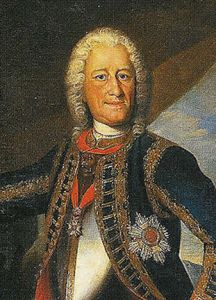
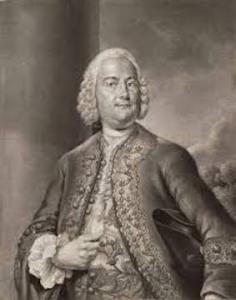





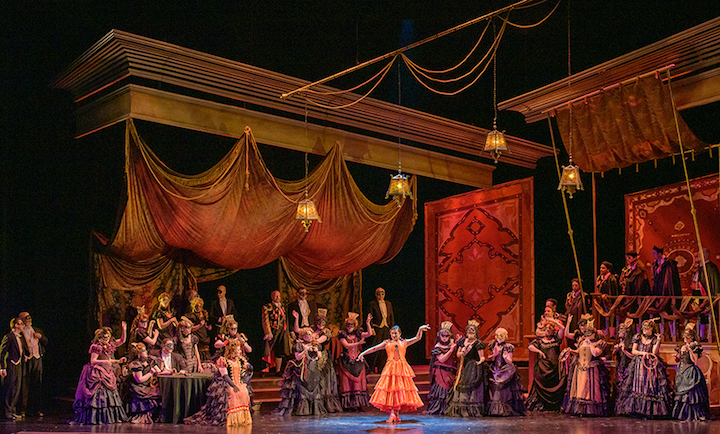
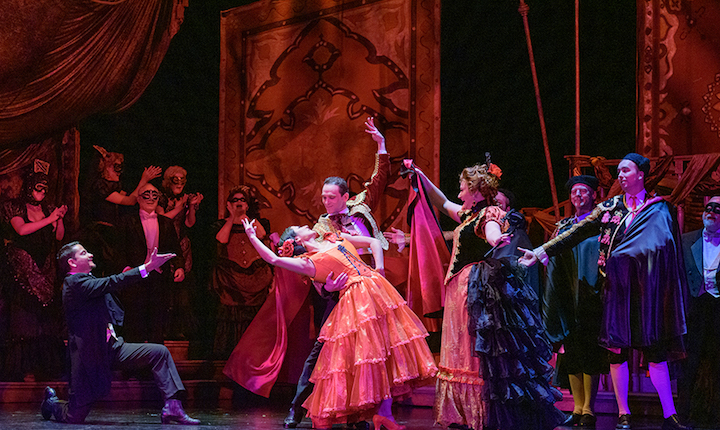
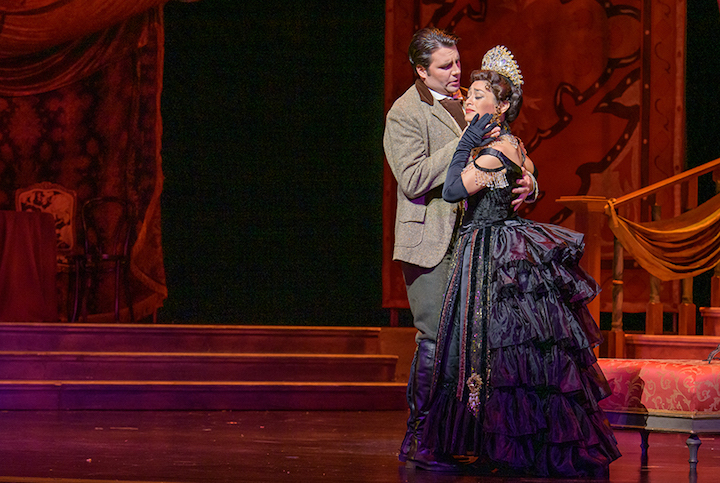
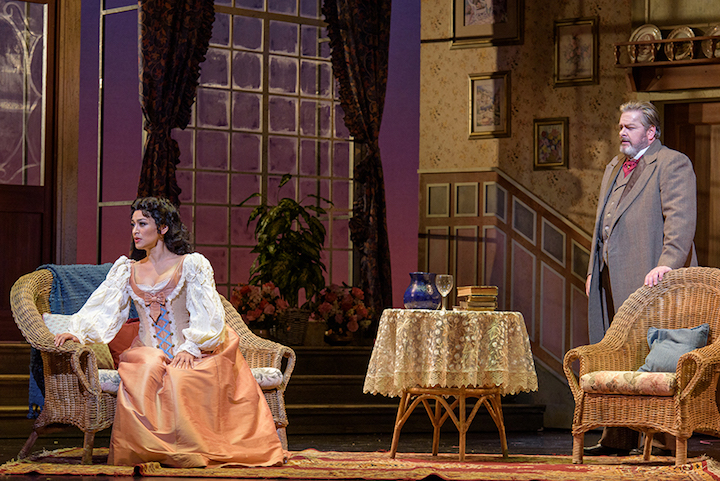
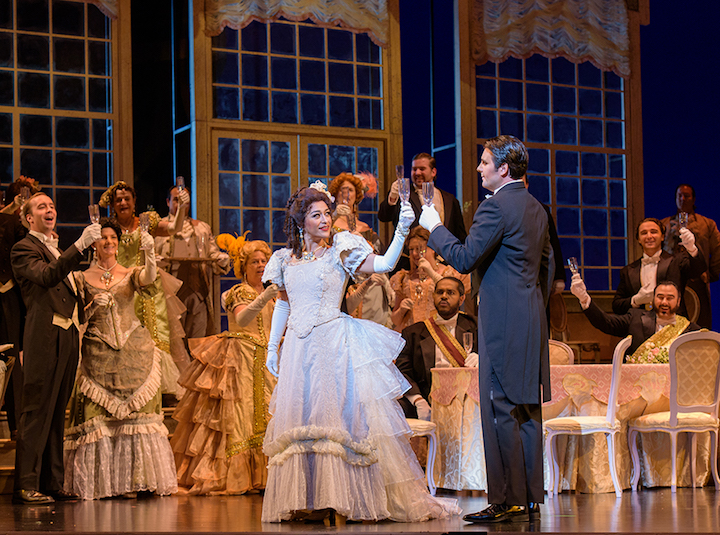
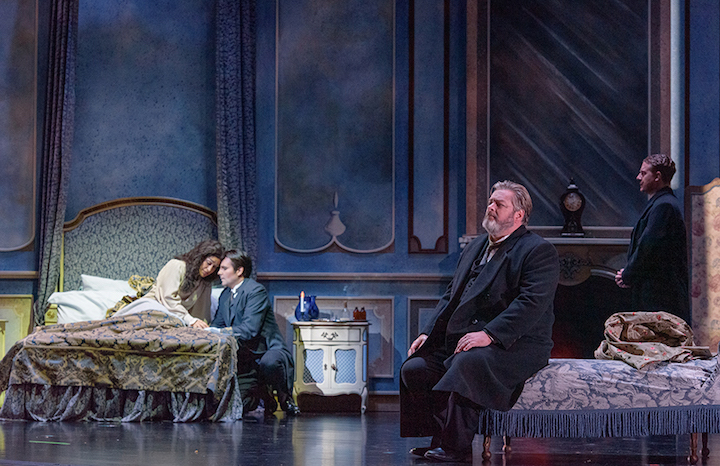

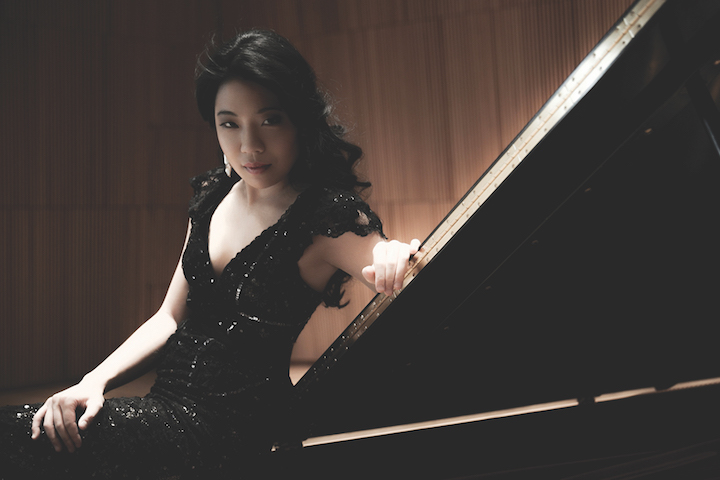






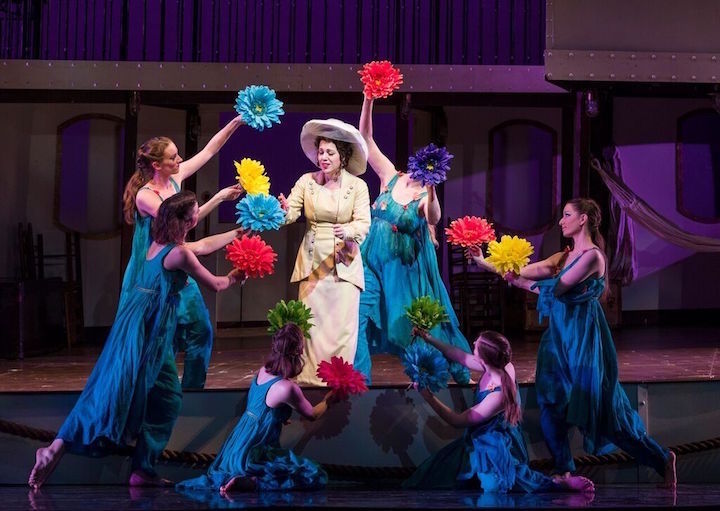
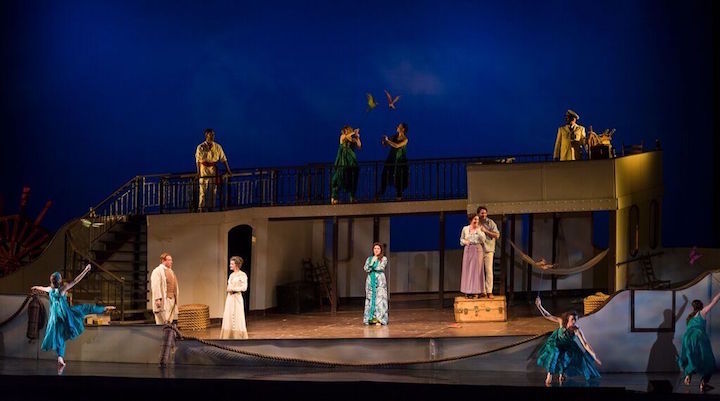
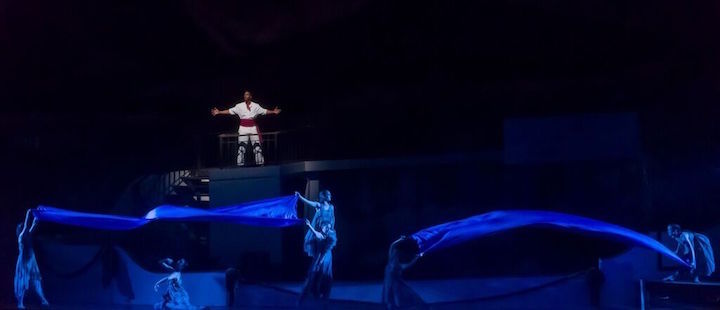
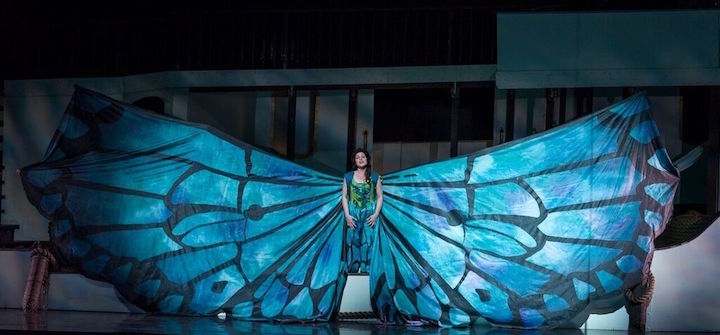
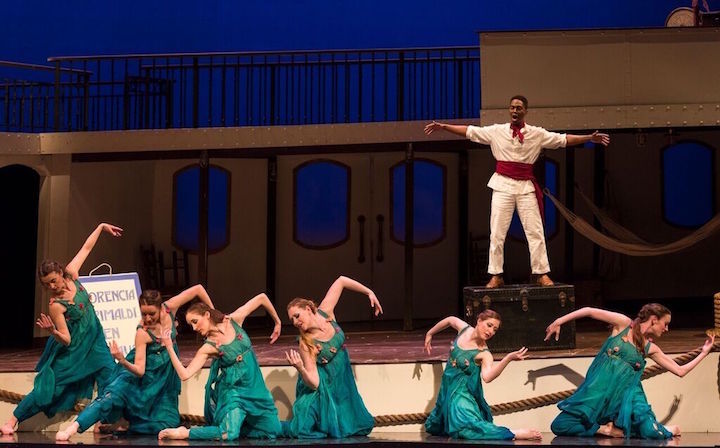
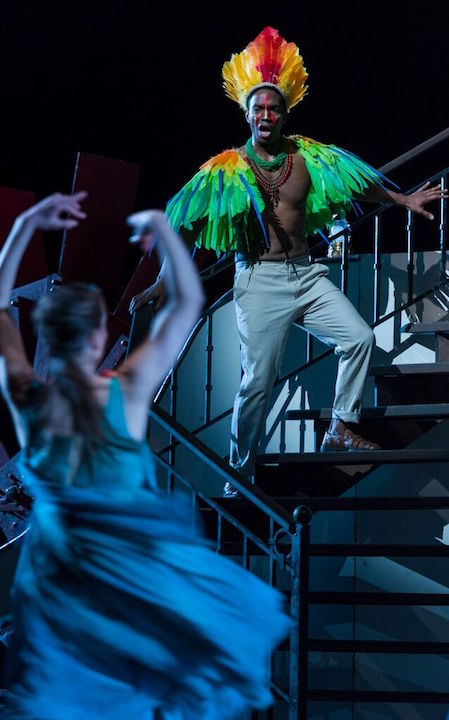
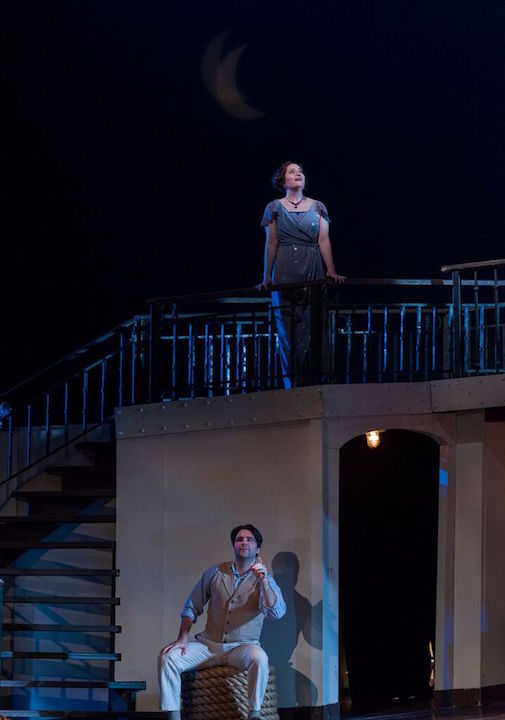
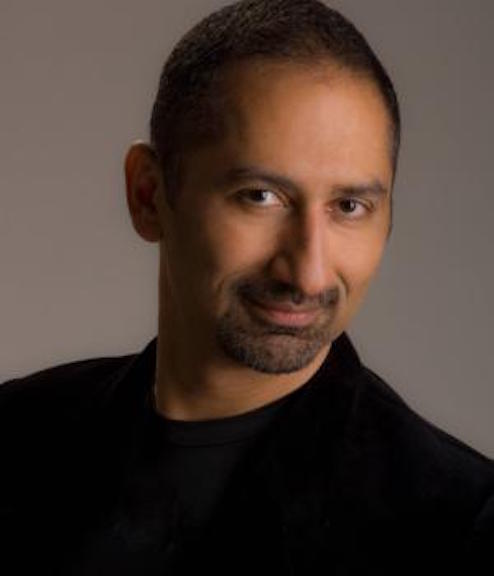
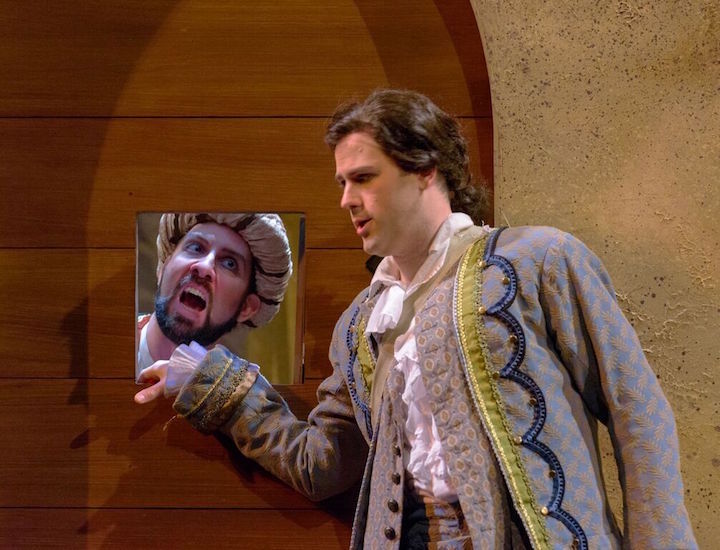
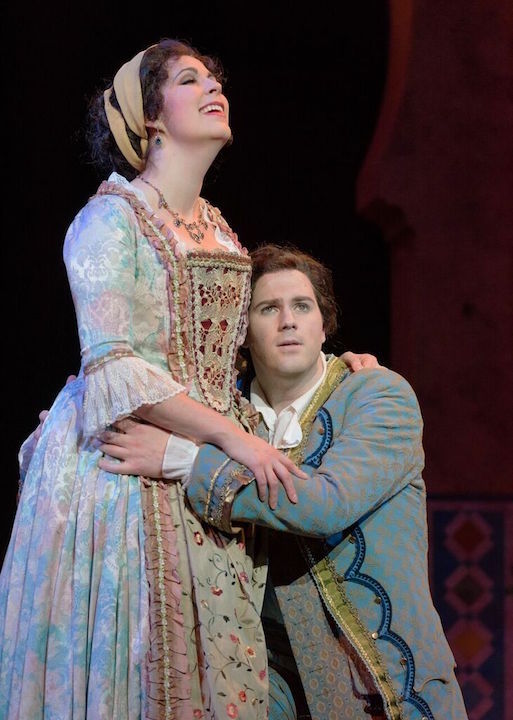
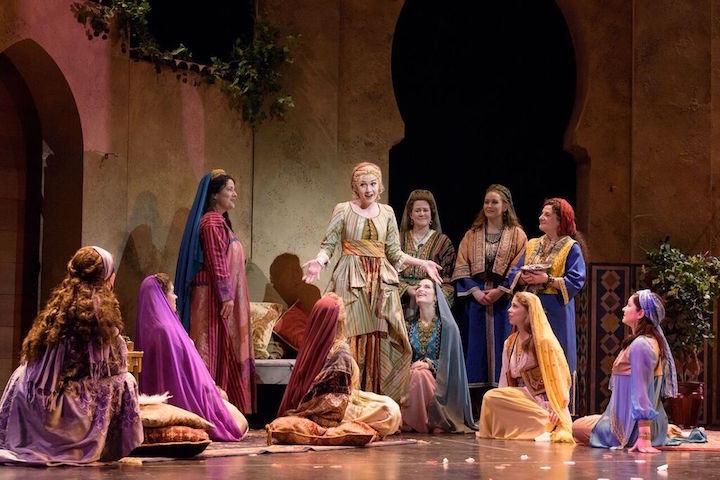
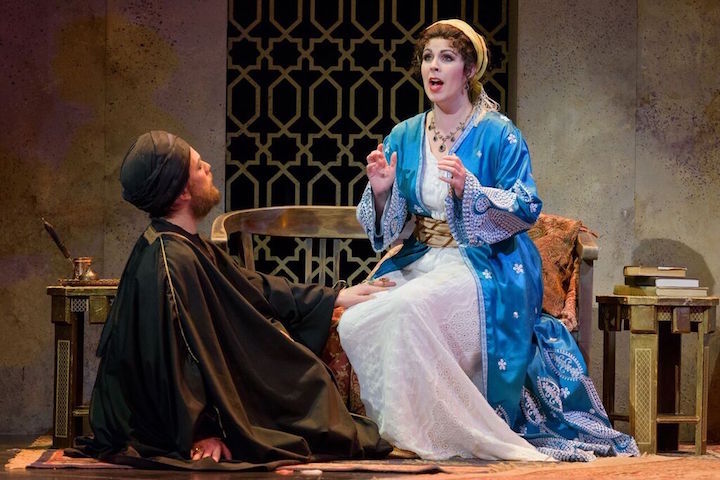
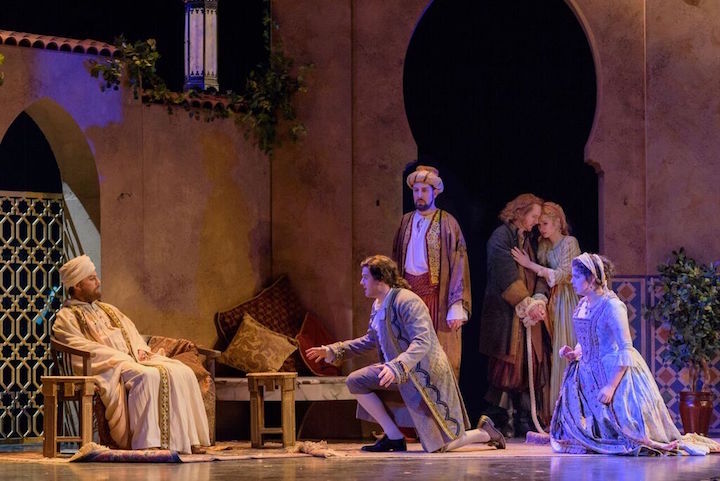
Classical music: A veteran reviewer bids farewell with a rave review of this summer’s last concert by the Willy Street Chamber Players and UW-Madison pianist Christopher Taylor
18 Comments
IF YOU LIKE A CERTAIN BLOG POST, PLEASE SPREAD THE WORD. FORWARD A LINK TO IT OR, SHARE IT or TAG IT (not just “Like” it) ON FACEBOOK. Performers can use the extra exposure to draw potential audience members to an event. And you might even attract new readers and subscribers to the blog.
By Jacob Stockinger
Here is a very special posting, the final review that will be written by frequent guest critic and writer for this blog, John W. Barker.
Barker (below), who is dealing with medical issues, is an emeritus professor of Medieval history at the University of Wisconsin-Madison. He also is a well-known classical music critic who wrote for The Capital Times, Isthmus and the American Record Guide, and who, until two weeks ago, hosted an early music show once a month on a Sunday morning on WORT-FM 89.9. For years, he served on the Board of Advisors for the Madison Early Music Festival and frequently gave pre-concert lectures in Madison.
Please use the comment section to join The Ear in thanking Barker for his many years of public service and wishing him well.
By John W. Barker
I had to miss the first concert this summer by the Willy Street Chamber Players (below) on July 12; and the next one, on July 19, was cancelled because of power failures. But the final one, last Friday night, was well worth waiting for — one of the really memorable events of the year, I think.
The program, performed at the usual near East Side venue of the Immanuel Lutheran Church, 1021 Spaight Street, began with some short items.
First, there was a set of Three Nocturnes (1924) for piano trio — violin, cello and piano — by Ernest Bloch. They contain elements of the Hebraic sound that Bloch cultivated but also had their own individualities, the first two contemplative and the third marked “tempestuoso.” Interesting was Bloch’s alternating uses of muting the strings.
After this came an example of the short pieces for string quartet by the contemporary composer Jessie Montgomery, her “Voodoo Dolls” (2008). Much is packed into this five-minute piece. A few lyrical touches aside, it sounded like a hoedown gone crazy, full of quite novel sounds, including rhythmic thumping on the wood of the instruments.
All that was a curtain-raiser to the big event of the program: the Piano Quintet No. 2 in A major, Op. 81, by Antonin Dvorak. This 40-minute work is one of the composer’s best-known chamber music compositions, and one of the standouts in the whole chamber music literature.
The very opening notes of the first movement bring a flood of warm well-being. (After hearing just that, I commented, “I haven’t felt such happiness in months.”)
The fecundity and richness of invention pervaded the entire work. For me, its high point is the second movement, in which Dvorak (below) used the Czech formula of the dumka, a kind of folk music lament that is paced slow-fast-slow-fast. (You can hear the Dumka movement, played by the Jerusalem Quartet and pianist Stefan Vladar, in the YouTube video below.)
Dvorak liked to play viola in chamber music, and so he always wrote some good things for himself. The sublime passages for viola in this movement were played with such transcendent beauty by Rachael Hauser (below) – who is leaving Madison for New York City — that I felt I was hearing the composer’s voice directly. Put simply, this was one of the greatest examples of chamber-music performance that I have ever heard.
All of the players, many of whom play in the Madison Symphony Orchestra, of course matched remarkable skill with humane vitality and vibrancy.
And a measure of the Willys’ standards was the fact that they were able to draw as a partner no less than that magnificent UW-Madison music school pianist, Christopher Taylor (below), who also performed the same Dvorak Piano Quintet in the 1993 Van Cliburn International Piano Competition, where he won a bronze medal. Much of his excellence here was demonstrated by the fact that he did not play the star, but joined with the Willys in perfect collegial integration.
This ends the Willy Street group’s fifth summer season. As a symbol of vibrancy and fresh spirit, they are among the most important of Madison’s classical music world today. They have drawn steadily growing audiences, and the house was truly packed for this concert. We can only hope that they will continue to brighten that world in the years ahead.
I am now ending my time as a music critic. I can think of no more satisfying a final review to write than of the Willy Street Chamber Players.
Share this:
Tags: #AmericanRecordGuide, #AntoninDvorak, #AudienceMembers, #BlogPost, #BlogPosting, #BlogReview, #BronzeMedal, #ChamberMusic, #ChristianChurch, #ChristopherTaylor, #ContemporaryComposer, #ContemporaryMusic, #Curtain-Raiser, #CzechMusic, #EastSide, #EmeritusProfessor, #ErnestBloch, #FacebookPost, #FacebookPosting, #FolkMusic, #HebraicMusic, #HighPoint, #ImmanuelLutheranChurch, #InstrumentalMusic, #IsthmusNewspaper, #JacobStockinger, #JerusalemQuartet, #JessieMontgomery, #JohnW.Barker, #LivingComposer, #LyricalMusic, #MadisonEarlyMusicFestival, #MadisonSymphonyOrchestra, #MeadWitterSchoolofMusic, #MedievalHistory, #ModernMusic, #MusicCritic, #MusicReview, #MusicSchool, #NewYorkCity, #PianoQuintet, #PianoTrio, #PowerFailure, #PublicService, #RachelHauser, #RadioHost, #RadioShow, #RadioStation, #StefanVladar, #StringQuartet, #SundayMorning, #TheCapitalTimes, #TheEar, #TheWillys, #UniversityofWisconsin-Madison, #VanCliburn, #VanCliburnInternationalPianoCompetition, #VoodooDolls, #WillyStreetChamberPlayers, #WORT-FM89.9, #YouTubevideo, advisor, ahead, alternating, American Record Guide, Antonín Dvořák, Arts, audience, beauty, best-known, bid, blog, board, brighten, bronze, bronze medal, bronze medalist, cancel, cellist, Cello, Chamber music, Christian, Christopher Taylor, church, Classical music, classicalmusic, collegial, comment, composer, Concert, contemplative, contemporary, crazy, cultivate, Czech, dance, demonstrate, directly, doll, dumka, Early music, earlymusic, east side, emeritus professor, end, Ernest Bloch, event, example, excellence, Facebook, fact, farewell, fecundity, feel, felt, final, flood, folk, folk dance, Folk music, formula, forward, frequent, fresh, great, group, growing, guest, happiness, hearing, Hebraic, high point, History, hoedown, House, humane, Immanuel Lutheran Church, important, individualities, instrument, instrumental music, integration, interesting, invention, items, Jacob Stockinger, Jerusalem, Jerusalem Quartet, Jessie Montgomery, John W. Barker, known, lament, lecture, like, literature, living, Living composer, lyrical, Madison, Madison Early Music Festival, Madison Symphony Orchestra, match, Mead Witter School of Music, measure, medal, medical issues, Medieval, memorable, modern, months, morning, movement, Music, music school, muting, New York City, Newspaper, nocturne, novel, packed, partner, passage, perfect, performer, pervade, Pianist, Piano, Piano Quintet, Piano Trio, pieces, players, post, posting, power, power failure, public service, quintet, Rachel Hauser, Radio, radio show, radio station, rave, reader, recording, remarkable, review, reviewer, rhythmic, rich, richness, satisfying, service, set, share, short, skill, Sound, special, spirit, spread, standards, standout, star, Stefan Vladar, String quartet, strings, sublime, subscriber, summer, Sunday, Sunday morning, symbol, tag, thank, The Capital Times, The Ear, The Willys, three, thump, thumping, time, touch, transcendent, United States, University of Wisconsin-Madison School of Music, University of Wisconsin–Madison, use, UW-Madison, Van Cliburn, Van Cliburn International Piano Competition, venue, Veteran, vibrancy, Viola, Violin, violinist, violist, vitality, voice, Voodoo, Voodoo Dolls, warm, well-being, Willy Street Chamber Players, Wisconsin, Wiscosnin, wood, work, world, WORT-FM 89.9, worth, Writer, year, YouTube